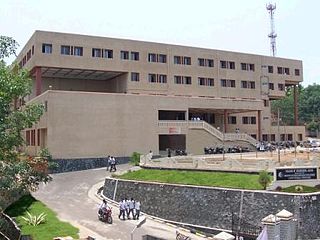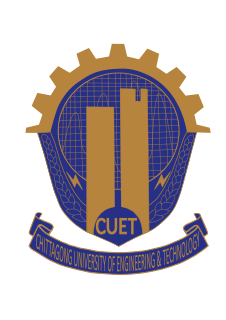Related Research Articles

Chalmers University of Technology is a Swedish university located in Gothenburg that focuses on research and education in technology, natural science, architecture, mathematics, maritime and other management areas.
Regulation and licensure in engineering is established by various jurisdictions of the world to encourage public welfare, safety, well-being and other interests of the general public and to define the licensure process through which an engineer becomes authorized to practice engineering and/or provide engineering professional services to the public.

The Institution of Civil Engineers (ICE) is an independent professional association for civil engineers and a charitable body in the United Kingdom. Based in London, ICE has over 93,000 members, of whom three-quarters are located in the UK, while the rest are located in more than 150 other countries. The ICE aims to support the civil engineering profession by offering professional qualification, promoting education, maintaining professional ethics, and liaising with industry, academia and government. Under its commercial arm, it delivers training, recruitment, publishing and contract services. As a professional body, ICE aims to support and promote professional learning, managing professional ethics and safeguarding the status of engineers, and representing the interests of the profession in dealings with government, etc. It sets standards for membership of the body; works with industry and academia to progress engineering standards and advises on education and training curricula.
The Institution of Mechanical Engineers (IMechE) is an independent professional association and learned society headquartered in London, United Kingdom, that represents mechanical engineers and the engineering profession. With over 120,000 members in 140 countries, working across industries such as railways, automotive, aerospace, manufacturing, energy, biomedical and construction, the Institution is licensed by the Engineering Council to assess candidates for inclusion on its Register of Chartered Engineers, Incorporated Engineers and Engineering Technicians.
The Engineering Council is the UK's regulatory authority for registration of Chartered and Incorporated engineers and engineering technician, holding a register of these and providing advice to students, engineers, employers and academic institutions on the standards for registration and procedures for registration. It is also responsible for the accreditation of educational and training programs, delegating this responsibility to licensed member institutions.

Punjab Engineering College is a prestigious public institute founded in 1921 which focuses on the field of applied sciences, particularly engineering and technology, in the Union Territory of Chandigarh, India.

Engineering New Zealand is a not-for-profit professional body that promotes the integrity and interests of members, the profession, and the industry. It seeks to "bring engineering to life" and has more than 20,000 members.

The Government College of Engineering, Adoor (CEA) is a college in Adoor, Pathanamthitta District, Kerala, India, located 3 km from the town centre at Manakala. It is affiliated with the APJ Abdul Kalam Technological University and is run under the aegis of the Institute of Human Resources Development, an institute of the government of Kerala. The College was inaugurated in 1995 by the Chief Minister of Kerala A K Antony. College of Engineering Adoor is recognized by the All India Council for Technical Education (AICTE). Recently the college has been selected in Technical Education Quality Improvement Programme (TEQIP) Phase II. It is one of the major engineering colleges in Pathanamthitta District and is one of the eight engineering colleges in the District.

The Modern Records Centre (MRC) is the specialist archive service of the University of Warwick in Coventry, England, located adjacent to the Central Campus Library. It was established in October 1973 and holds the world's largest archive collection on British industrial relations, as well as archives relating to many other aspects of British social, political and economic history.

Chittagong University of Engineering & Technology commonly referred to as CUET, is a public engineering university in Bangladesh located in Raozan Upazila under Chittagong District. Established in 1968, this university is a government funded autonomous self degree awarding institution, maintaining special emphasis on teaching and research of engineering, technology, architecture and planning under five faculties and seventeen academic departments.
Engineering education is the activity of teaching knowledge and principles to the professional practice of engineering. It includes an initial education, and any advanced education and specializations that follow. Engineering education is typically accompanied by additional postgraduate examinations and supervised training as the requirements for a professional engineering license. The length of education, and training to qualify as a basic professional engineer, is typically 8–12 years, with 15–20 years for an engineer who takes responsibility for major projects.
KMCT College of Engineering is an ISO 9001:2000 certified self-financing college affiliated to the University of Calicut, A P J Abdul Kalam Technological University located in Manassery, Kozhikode, Kerala, India.

The College of Engineering Perumon was started in 2000 under the Co-operative Academy of Professional Education Society. The society was formed to establish educational institutions to provide education and training, research and development, and consultancy. The society is promoted by the Co-operation Department of the government of Kerala and is an autonomous society.

The Chartered Institution of Building Services Engineers is an international professional engineering association based in London that represents building services engineers, also commonly known as Mechanical and electrical engineers, Architectural engineers, Technical building services engineers, Building engineers, or Facilities and services planning engineers. It is a full member of the Construction Industry Council, and is consulted by government on matters relating to construction, engineering and sustainability. It is also licensed by the Engineering Council to assess candidates for inclusion on its Register of Professional Engineers.
In the United Kingdom, a Chartered Engineer is an Engineer registered with the Engineering Council. Contemporary Chartered Engineers are degree-qualified and have gained the highest level of professional competencies through training and monitored professional practice experience. This is a peer reviewed process. The formation process of a Chartered Engineer consists of obtaining an accredited Master of Engineering (MEng) degree, or BEng plus MSc or other master's degree or City and Guilds Post Graduate Diploma in an engineering discipline, and a minimum of four years of professional post graduate peer reviewed experience. The title Chartered Engineer is protected by civil law and is a terminal qualification in engineering. The Engineering Council regulates professional engineering titles in the UK. With more than 180,000 registrants from many countries, designation as a Chartered Engineer is one of the most recognisable international engineering qualifications.

The Government Engineering College, Kozhikode (GECK) is an engineering institution under the Department of Technical Education in Kozhikode, Kerala, India. Kerala's state government founded it in August 1999, and it has been rated consistently among the top technical institutes in the state.
Eckehard Specht is a professor in Otto von Guericke University, Magdeburg, Germany. He belongs to Institute of Fluid Dynamics and Thermodynamics (ISUT) department. His specializations are Combustion technology, heat and mass transfer, chemical process engineering, global warming, and ceramic materials.
Engineering Council of India (ECI) is an apex body of engineering associations in India. It was established on 4 April 2002, as the Apex Body of engineering profession in India, by coming together of a large number of Professional Organizations /Institutions of Engineers to work for the advancement of engineering profession in various disciplines and for enhancing the image of engineers in society, by focusing on quality and accountability of engineers. Headquarters of ECI is at New Delhi, India. Today there are 40 members, which includes 8 Government Departments and 32 Indian Engineering Professional Associations/ Institutions representing

The Indian Society for Technical Education is a national, professional, non-profit Society registered under the Indian Societies Registration Act of 1860. First started in 1941 as the Association of Principals of Technical Institutions (APTI), it was converted into "Indian Society for Technical Education" in 1968 with a view to enlarge its activities to advance the cause of Technology education. ISTE has an Executive Council at National level. It has active membership of more than 97286 technical teachers, 5,66,466 student members, more than 2345 institutional members, 1166 faculty chapters and 1280 students’ chapters throughout the country. The major objective of the ISTE is to assist and contribute in the production and development of top quality professional engineers and technicians needed by the industries and other organisations. Being the only national organisation of educators in the field of Engineering and Technology, ISTE effectively contributes in various missions of the Union Government. The Ministry of Human Resource Development, CTE/Department of Science and Technology/MIT/State Govts. are well associated with the ISTE for programmes relating to technical education.
References
- ↑ http://metamorphosis.org.mk/en/component/content/91?task=view Archived 2011-07-21 at the Wayback Machine Engineering Ring for the best young engineers